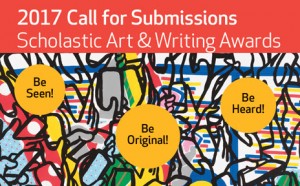Wednesday Writing Workshop – Prewriting
Writing Workshops
A mini-lesson (no more than 15 minutes) will take place at the beginning of each writing workshop.
Everyone in class must continue to write for the entire writing workshop time.
Students may work on any writing assignment or personal writing, as long as they are writing.
Writer conferences will take place with students on an individual basis.
Mini-Lesson for Wednesday’s Writing Workshop:
What is Prewriting (Brainstorming)?
Prewriting activities help you generate and refine paper-topic ideas. Most writers begin with only a vague or superficial idea of what they want to write about. Prewriting helps you develop your topic by reminding you of what you already know, clarifying what you have yet to learn, and discovering which dimensions of the subject have the greatest “emotional heat” for you.
There are a wide variety of prewriting activities that can help you move forward from your first-impulse writing ideas to a well-defined topic that addresses the requirements of the assignment, audience need, and appropriately assesses the scope of coverage. The most common of these are Clustering, Cubing, Dialoguing, Dramatizing, Free-writing, Listing, Matrixing, Outlining, and Topical Invention. These activities can be combined and customized to fit your personal working style and the needs of the assignment.
Today our mini-lesson focused on Free-writing:
Writers, especially struggling writers, are often discouraged about the quality of their writing even before they put anything on paper. This attitude keeps them from the fluid, almost unconscious act of putting words on paper that is so important to many writing tasks. Writers often write to find out what they think, not just to transcribe what they know they think. Because free-writing requires that students write without monitoring their thoughts, without doubting themselves, they are “free” to explore words, phrases, and ideas that they might never access in a more constrained context. Today we did three separate timed free-writing experiments.
- Students were shown an abstract picture and given 2 minutes to write any and everything that came into their minds.
- Students were given a word and given 2 minutes to write any and everything that came into their minds.
- Mrs. Scales told the story about wetting her pants in Paris, France. Students were then given 5 minutes to write about one of their most embarrassing moments.
After a lot of laughter and several surprising revelations, students went to work on some free-writing as a form of prewriting for their first large writing assignment. Each student will spend the next several weeks writing an entry for the Scholastic Art and Writing Awards. This means that each student can decide from the list of categories provided what type of writing they wish to do. Students who like poetry can use their writing workshop time to write poetry. Students who like telling stories can write short stories of flash fiction. Memoir writing is also an option. To see the full list of categories students were referred to this week’s lesson plans or the Scholastic Art and Writing Awards page on this blog.
